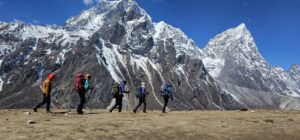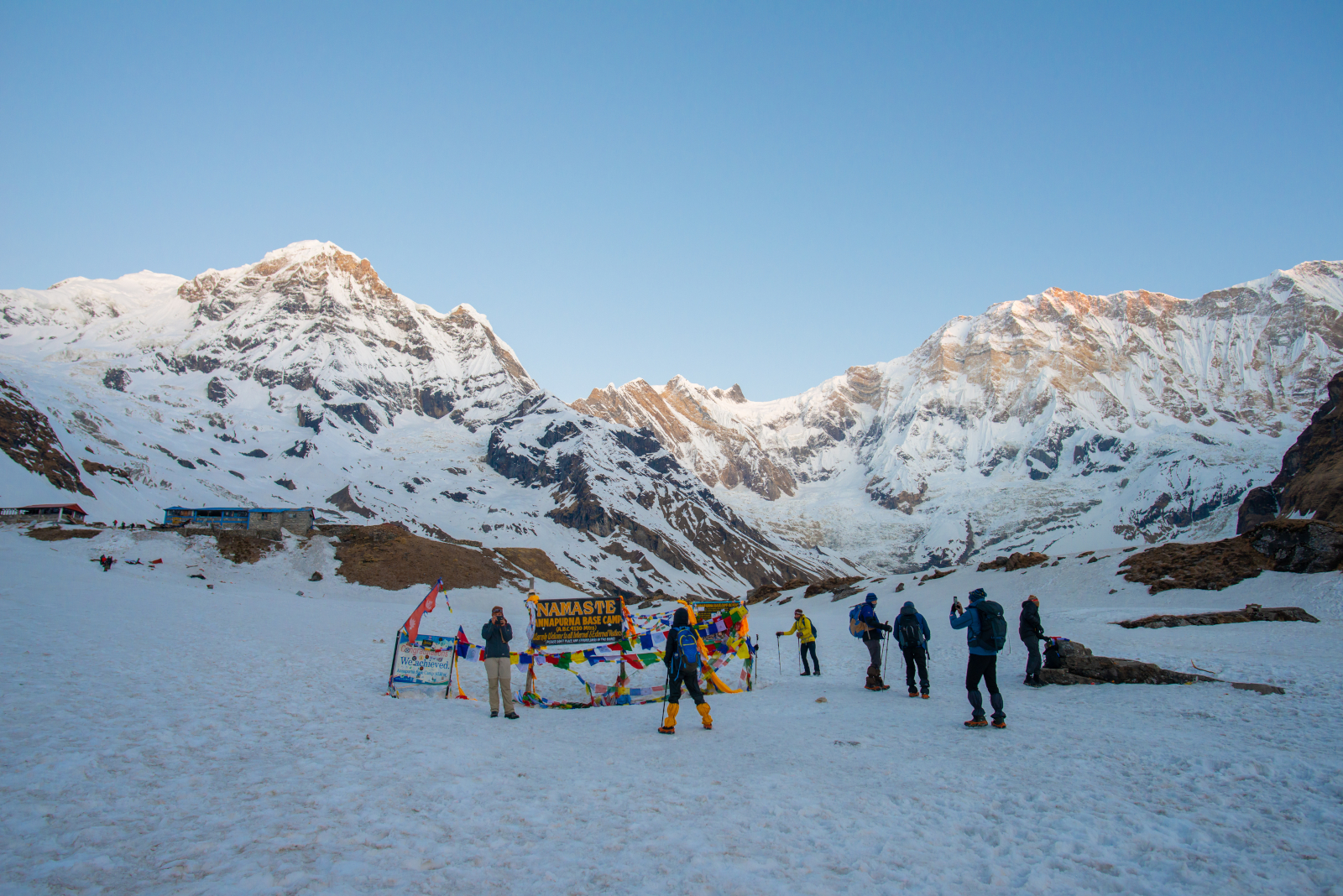Trekking in Nepal is an adventure of a lifetime, and it’s natural to worry about the costs involved. While many international trekking experiences can be quite expensive, Nepal stands out as an affordable destination where you can immerse yourself in breathtaking landscapes without stretching your budget too thin. After spending a total of eight months trekking in this beautiful country over two trips, I discovered that, apart from the initial flight costs, the overall trekking in Nepal costs & budget can be surprisingly manageable. On average, I spent around $1,000 a month during my treks. Although my last visit was in 2017, prices remain relatively affordable—just keep in mind that there may be a slight increase due to inflation.
Table of Contents
ToggleBreaking Down the Costs of Trekking in Nepal

When planning your trek, you’ll want to consider four main expenses: accommodation and food, gear, transportation, and the option to hire guides or porters. Here’s a closer look at each of these costs and some tips on how to save money along the way.
Accommodation & Food: Your Main Budget Line
Estimated Cost: $15-25 per day
Accommodation and food make up the bulk of your expenses while trekking. Most guesthouses will encourage you to eat on-site, offering low room prices to attract guests. You can find rooms ranging from free to about $5 a night, with an average cost around $2-3.
Food prices vary depending on your elevation and proximity to roads. For budget-friendly meals, stick to local dishes. Instead of splurging on snacks like chocolate bars or drinks, opt for simple meals such as rice and vegetables to keep costs manageable.
Tip: Avoid haggling too much over prices. Guesthouse owners are fair, and it’s best to respect their pricing. Remember, they rely on your business!
Gear: Essentials vs. Extras

Estimated Cost: Varies
If you’re trekking through guesthouses, you won’t need a lot of specialized gear. While you can find cheaper options in Kathmandu, I recommend investing in good-quality hiking shoes and a sturdy backpack before you arrive. If you do need gear, there are plenty of reliable shops in Thamel.
Read More: 18 Fun Things to Do in Thamel
For high-ticket items like sleeping bags and down jackets, consider renting instead of buying. You can usually rent a sleeping bag for less than $1 a day.
Basic Gear Checklist for Trekking in Nepal:
- Hiking Shoes: Invest in quality ($100+)
- Sleeping Bag: Rent for $1/day or bring your own
- Backpack: Use what you already have
- Water Treatment System: $5-80 depending on the type
- Reusable Water Bottles: $1-5
- Warm Layers: $5-100 depending on the source
- Rain Gear: $10-100 based on quality
Getting There: Transportation Costs
Estimated Cost: $5-160
The cost of getting to your trekking site varies. Local buses are the most economical option, generally around $5, while shared jeeps provide more comfort. Domestic flights are faster but pricier, costing about $160. If you can afford it, private helicopters are available, but expect to spend a lot for that convenience.
Hiring Guides & Porters: A Helpful Choice
Estimated Cost: $30+/day for a guide, $16+/day for a porter
While it’s possible to trek independently, hiring a guide or porter can significantly enhance your experience. Many trekkers find that having a local guide adds valuable insights and support. If you decide to hire someone, ensure they are certified and knowledgeable about your planned route.
Keep in mind that it’s customary to tip your guide and porter at the end of your trek.
Enjoying Kathmandu: Budget for the City
Estimated Cost: $30-50 per day
Your expenses may increase while exploring Kathmandu, especially if you enjoy Western food or shopping for souvenirs. However, there are plenty of free activities to balance your spending.
Read More: Best Hiking around Kathmandu Valley
Tips to Save on Your Trek
- Choose Less Touristy Regions: The Lang Tang region tends to be cheaper than the more popular Everest region, costing around $10-12 a day.
- Go Solo if Confident: If you’re an experienced hiker, you can save money by trekking independently. However, consider a guide if you’re unsure.
- Stick to the Trails: Extend your trekking days to minimize your daily costs.
- Eat Local: Limit expensive snacks and enjoy basic meals.
- Explore Off the Beaten Path: Spend time in less touristy villages to keep costs down.
With thoughtful planning, trekking in Nepal can be an incredible experience without straining your finances. If you can manage a trekking trip at home, you can absolutely enjoy a similar adventure in Nepal without overspending.
Conclusion
In summary, trekking in Nepal offers breathtaking scenery and rich cultural experiences without a hefty price tag. With some smart planning and flexibility, you can embark on a memorable adventure while sticking to your budget. So gather your gear and get ready to explore the majestic trails of Nepal!











